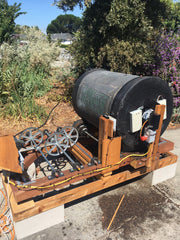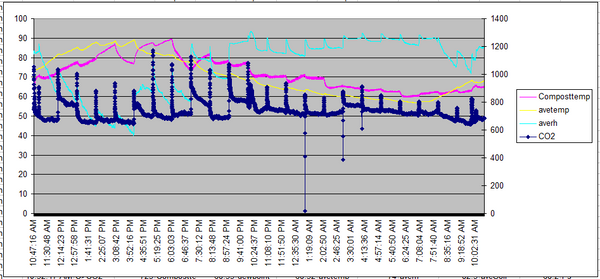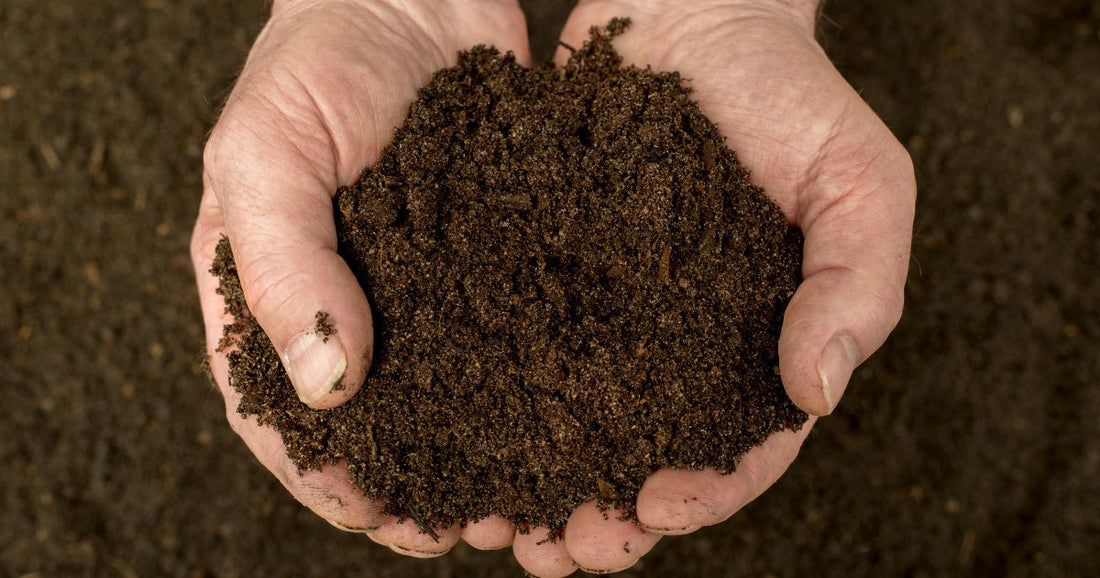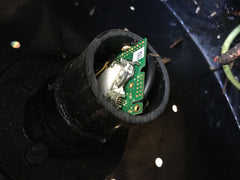
Over the years, CO2Meter has forged great relationships with universities and researchers throughout the world - all with the common goal of utilizing our sensor solutions to further their discoveries and testing.
One intriguing CO2Meter researcher, Paul Holowko, utilizes our K30 10,000ppm CO2 Sensor (SE-0018) to measure CO2 levels for a home product of composting.
Paul stated, "Currently, there is no real composting machine out on the market under $1,000 in which is fully automatic and without additives." "This composting product, takes everything from shredded paper - to dead rats!"
CO2Meter quickly became fascinated with Paul's overall research and mission with the device in making compost fungal; and its use towards tree disease suppression. In addition, the device is also used for farming where soil can be recovered from traditional chemical and synthetic fertilizer farming.
An added bonus? The device can be used for plant disposal and CO2 generation for grow houses, and can chew up to around 15 gallons of plant material a week!

Picture of Paul's Compost Device
CO2Meter recently interviewed Paul, to discuss the importance of the K30 SE-0018 within his project and to gain further details on his research.
CO2Meter: Paul, could you tell us more about the purpose of the machine?
Paul: "It's a multi-purpose tool used for supporting infrastructure for any type of soil building and organic material handling (experiments and research)"
A few supporting areas include:
- Disposing of kitchen waste without any knowledge of composting
- Growing compost from any material where it's heavy in bacteria, protists, fungi or worms
- Used currently as a test unit for product development of a kitchen counter-top compost machine for home use
- Yard waste disposal
- CO2 producer for cannabis and grow rooms
CO2Meter: Could you dive into some of the machines overall functionality?
Paul: "When raw material is entered in from a large opening on the drum along with some yard soil, this starts the composting process. No glass, metal or plastics can interfere, and no special additives are needed."
"A set of sensors are inside the drum to control the compost processes. In addition, water is added when needed. Fans then blow outside air into the drum to heat, cool or reduce CO2 in the compost."
"Compost is fluffed every hour with one turn of the drum. Dependent upon the material deposited, compost is done in about 2 or 3 days. However, it can take about 15 gallons of raw material weekly."
"Next, after new material is added to drum, the user rotates the drum by pushing a button. Affectionately, we call this "flushing" the compost. This then prevents flies and smells from occurring in the unit; as there are no filters needed for smell control."
"Finally, there are a set of propitiatory equations used for controlling ambient temperature, watering, carbon dioxide, relative humidity and compost temperature. The unit prevents the compost from going anaerobic and the whole drum is on a weight scale for measuring material off gassing."
CO2Meter: In your experience, could you tell us what the greatest change has been in your industry?
Paul: "The largest change has been the overuse of chemicals in farming and soil condition. There is farm land in the central valley in California that is not usable anymore. The CO2 meter is instrumental in building compost that supplements destroyed farm soil!"
Photo of K30 integrated in Compost Device
CO2Meter: Tell us about your experience with the K30 10,000ppm CO2 Sensor and its overall importance.
Paul: "The K30 is used to measure the metabolism of decomposition of food and plant wastes. It is also used in measuring the off gassing of carbon dioxide and is put into a control loop with heating mats, fans and watering systems. The K-30 unit is in a harsh environment, with high humidity and temperatures constantly. There are also compost partials everywhere. At times I had to install a dry/wet bulb hygrometer with thermometers and fans for measuring RH. The majority of sensors could not survive >=96%RH. The CO2 line shows pockets of CO2 released when the drum is turned on every hour, as compost is never allowed to go over 100 degrees Fahrenheit. Most of the energy is also wasted in building micro-biology by allowing it to go up to 160 degrees Fahrenheit, and back down"

Graph Above Displays overall K30 Data Logging Analysis
CO2Meter: Why did you choose CO2Meter as an overall CO2 sensor provider, and utilized us for your business?
Paul: "CO2Meter is a great source, and is also the most cost effective."
CO2Meter: Are you utilizing the K30 Sensor in anoy other ways?
Paul: "Yes. I do have another application which uses the K30 for air quality sensing. I'm using it along with another air quality sensor on top of a roof to measure how bad the air quality is in the bay area. I'm using it also, to send information off the roof for air quality and CO2 in the air to be used in a monitor inside the house"
CO2Meter: Is there any added insight that has come from the overall project?
Paul: "Yes, the need for natural bugs getting into the compost. It's important that bugs, flies and critters can get into the compost drum. They need to lay eggs for reproduction and consuming material. It turns out that they are an important part of the compost cycle in which we can not live without."
CO2Meter: What do the next 3-5 years look like?
Paul: "I want to integrate this device into compost machines for developing needed compost for soil recovery and disease suppression on overall plants".
In addition to the fascinating research and customer case studies that CO2Meter comes across, a huge factor when it comes to many projects is the need to measure carbon dioxide gas concentrations.
CO2Meter will continue to ensure that we provide the highest quality in gas detection devices, educational resources and technological advancements - in order to assist our customer's and further scientific development in the future.
For more information visit our website, or email us at Sales@CO2Meter.com or speak to an expert at (877) 678-4259.
Discover more information on Paul and Composting via Youtube, Here!








